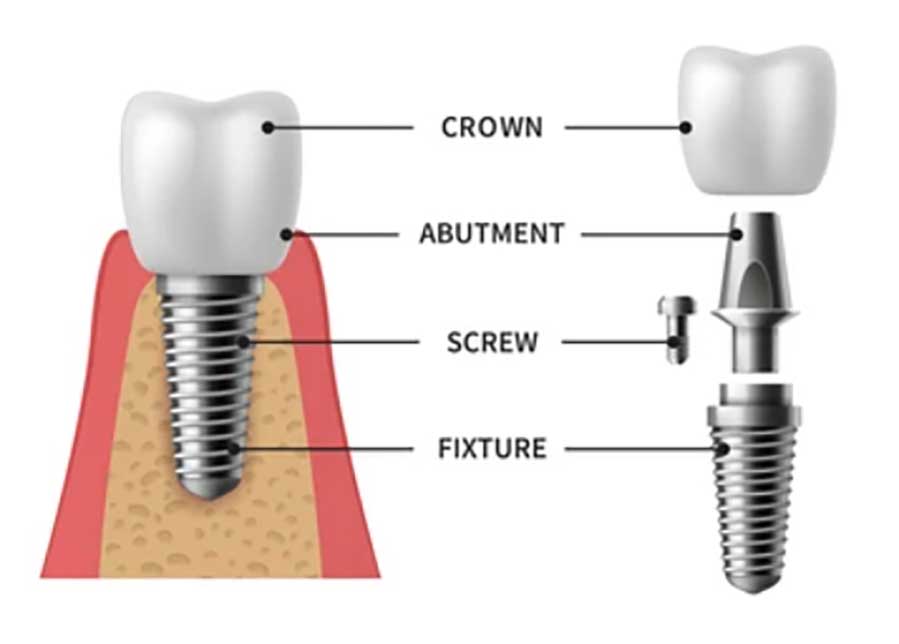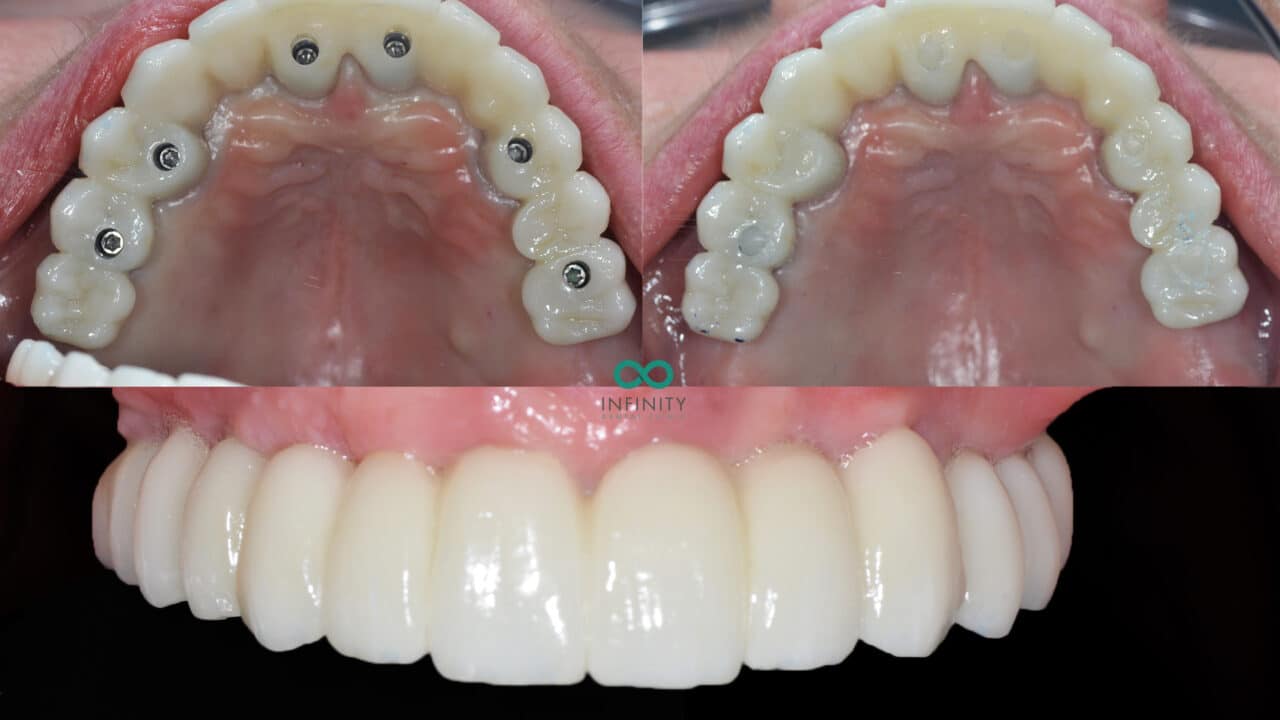Dental Implants Pataskala OH Full Mouth Dental Implants: An In-Depth Overview
Dental implants have emerged as a well-liked selection for people seeking a long-term solution to tooth loss. One important facet of understanding dental implants includes their effect on adjacent teeth. This is especially necessary for guaranteeing the health and longevity of the whole dental structure.
When a dental implant is positioned, it mimics the perform of a natural tooth root. By doing so, it helps keep the integrity of the surrounding bone structure. Natural teeth rely on a balanced, interconnected system for help, and dental implants can contribute positively to that dynamic. The stability offered by the implant allows for higher distribution of chunk forces, which may prevent undue stress on adjacent teeth.
Dental Care Alexandria OH Dental Implant Procedure: What You Need to Know Before Surgery
In circumstances the place a tooth is missing, the neighboring teeth could shift into the vacant house. This shifting can result in misalignment and various different problems. By inserting a dental implant, the chance of this shifting is reduced, as the implant acts as a placeholder that preserves the natural alignment of surrounding teeth. This preventive impact is crucial for long-term oral health and performance.
Another important consideration is bone loss. When a tooth is lost, the jawbone in the space can start to deteriorate because of an absence of stimulation. Dental implants help prevent this bone loss by offering the necessary stimulation to the jawbone, very like a natural tooth root would. This preservation of bone not only helps the implant itself but in addition contributes to the steadiness of adjacent teeth.
The kind of material used in dental implants, typically titanium, has a unique property of osseointegration, that means it fuses with the bone over time. This integration provides a sturdy basis for the bogus tooth whereas ensuring that the implant doesn’t negatively affect surrounding buildings. As the implant integrates, it creates an setting that contributes positively to the health of the adjacent teeth.

Regular dental check-ups play an important position in monitoring the impression of dental implants on adjacent teeth. Professional assessments can help identify any issues that may arise, ensuring prompt treatment and sustaining the health of the complete dental arch. These evaluations may embrace X-rays to check for bone density and the overall condition of the implant and surrounding teeth.
Johnstown Dental Pataskala OH Are Dental Implants Permanent? What You Should Know
Oral hygiene practices are important for individuals with dental implants. Proper brushing and flossing habits not only contribute to the longevity of the implant but also be positive that adjacent teeth remain wholesome. Food particles and plaque that accumulate across the implant may cause problems, including peri-implantitis, an inflammatory condition that may have an result on surrounding teeth and tissues.
The positioning of dental implants can affect the health of adjacent teeth. If an implant is positioned at an angle or not properly aligned, it might result in increased stress on neighboring teeth. This misalignment might cause put on and tear on adjacent enamel, probably resulting in cavities or other dental points. Therefore, the skill and experience of the dentist performing the implant process are paramount in attaining a successful consequence.
In some situations, further procedures may be needed to prepare the encompassing space for an implant. Bone grafting or sinus lifts can help create a better setting for the implant. While these procedures are aimed at enhancing the site for the implant, in addition they serve to guard the health of adjacent teeth by creating a extra steady foundation.
Pediatric Dentist Galena OH Step-by-Step Guide to Dental Implant Procedures

As dental expertise evolves, advancements in implant strategies lead to higher outcomes. Improved imaging methods and computer-aided design permit for extra precise placements that reduce risk to adjacent teeth. With these advancements, the probability of issues that could arise from improperly placed implants diminishes considerably.
Post-operative care also performs a important role in ensuring that adjacent teeth remain unaffected. Patients should adhere to the dentist's instructions regarding food regimen, oral hygiene, and follow-up visits. Neglecting these pointers might lead to problems that impact not only the implant but also the neighboring teeth.
Mono Dental Implants Alexandria OH Permanent Dental Implants
In conclusion, dental implants, when positioned correctly and cared for properly, have the potential to reinforce the health of adjacent teeth quite than detract from it. They keep alignment, stimulate bone development, and supply a safe basis that supports the entire dental structure. Understanding how dental implants have an effect on adjacent teeth emphasizes their importance as a long-term tooth replacement resolution. With steady advancements in technology and strategies, the combination of dental implants into restorative dentistry is changing into more and more successful, guaranteeing healthy and practical smiles for years to come back.

- Dental implants prevent adjacent teeth from shifting into the gap created by a missing tooth, serving to to take care of proper alignment within the mouth.
- The rebuilding of the jawbone by way of an implant can stimulate surrounding teeth and keep them healthy by providing needed bone density that might in any other case diminish.
- Adjacent teeth benefit from the stabilization that dental implants provide, reducing the chance of wear and tear and tear from misalignment throughout chewing.
- Implants can protect adjacent teeth by performing as a framework, which might distribute chew forces evenly across the dental arch as an alternative of placing undue stress on neighboring teeth.
- When positioned accurately, dental implants minimize the risk of gum disease which may affect adjacent teeth by sustaining a clean and wholesome gum line.
- The presence of an implant can facilitate an improved oral hygiene routine, because it eliminates the necessity for bridgework that could trap food particles round adjacent teeth.
- Regular dental check-ups can reveal how nicely the implant integrates with surrounding constructions, ensuring ongoing health for adjacent teeth.
- Implants can prevent the natural means of bone resorption that happens after tooth loss, positively impacting the steadiness and longevity of adjacent teeth.
- The use of dental implants would possibly reduce the necessity for more invasive procedures in the future, offering a long-term solution that maintains the structure of the complete dental arch.
- Successful integration of an implant into the dental arch enhances general oral perform, typically resulting in improved confidence and oral health for adjacent teeth.undefinedHow do dental implants have an result on adjacent teeth?
What impact do dental implants have on the alignment of adjacent teeth?
Dental implants typically prevent the shifting of adjacent teeth, serving to to take care of proper alignment. This stability can cut back the chance of creating chunk points over time.
Can dental implants cause look at this site injury to nearby teeth?
When positioned correctly by a qualified professional, dental implants shouldn't damage adjacent teeth - Orthodontics Johnstown OH. However, improper placement or insufficient planning may lead to complications
Orthodontics Hartford OH Dental Implant Benefits
Do dental implants require any special care relating to adjacent teeth?
Maintaining good oral hygiene is important. Surrounding teeth must be brushed and flossed regularly, and routine dental check-ups will assist make sure that both the implants and adjacent teeth stay healthy.

Will dental implants impression the health of my surrounding teeth?
Dental implants can improve the health of surrounding teeth by distributing bite forces evenly, decreasing put on and tear. Additionally, they will prevent bone loss within the jaw, which might affect adjacent teeth.
Orthodontics Hartford OH Dental Implant Services: Find the Best in Your Area
Are there any long-term effects of dental implants on nearby teeth?
Long-term, dental implants might help protect the health of adjacent teeth by stopping shifting and potential gum points, in the end contributing to raised oral health general. - Dental Clinic Granville OH
Can gum problems come up go to the website around adjacent teeth after getting implants?
If correct dental care is uncared for, gum issues may develop around both the implants and adjacent teeth. Following post-operative care directions is crucial to minimize these risks.
Smile Care Galena OH Permanent Dental Implants
How do dental implants evaluate to bridges when my sources it comes to adjacent teeth?
Dental implants are usually useful as they don’t require alteration of adjacent teeth, not like bridges, which necessitate reshaping of close by teeth for help. (Johnstown Dental Granville OH)
Can I nonetheless get cavities in adjacent teeth if I have dental implants?
Yes, adjacent teeth can still develop cavities if not correctly cared for. Dental implants themselves can't get cavities, however they require vigilant hygiene practices to protect surrounding natural teeth.
What is the success rate of dental implants in relation to surrounding teeth?
The success rate of dental implants is high, however it largely is dependent upon the standard of the process and ongoing care. Well-maintained implants typically result in better outcomes for adjacent teeth as well.